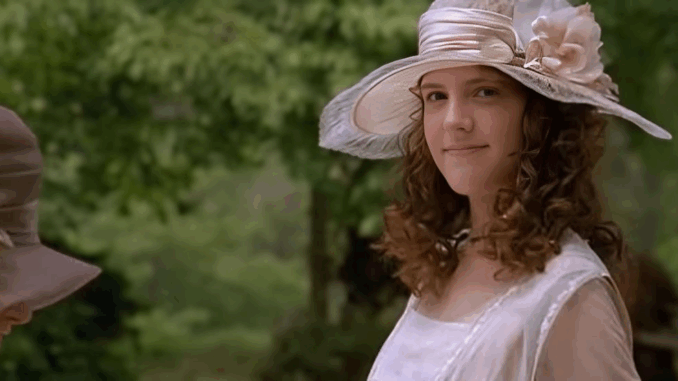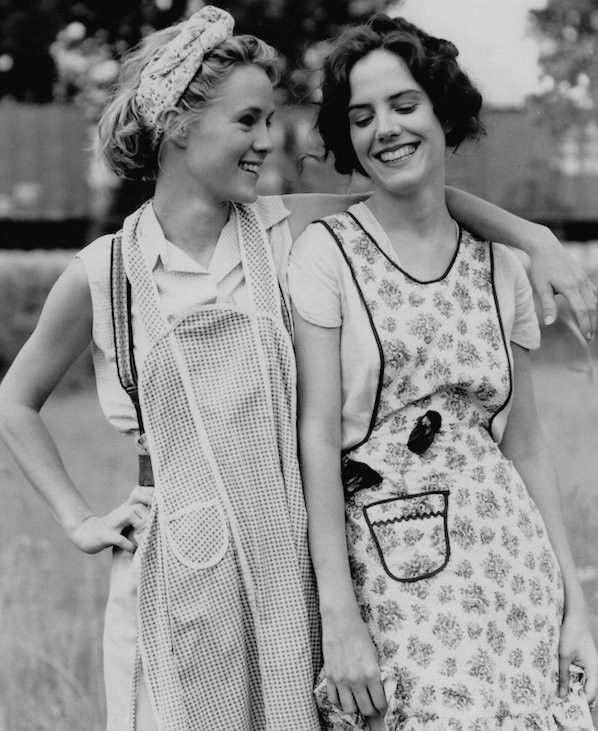
In 1991, the world was introduced to Fried Green Tomatoes, a film that blended Southern charm, small-town bonds, and timeless themes of resilience and love. Among its many unforgettable performances, Mary-Louise Parker’s portrayal of Ruth Jamison stood out. Critics and audiences alike praised her ability to capture both vulnerability and strength as a woman surviving an abusive marriage while carving out a new life at the Whistle Stop Café. Parker’s Ruth wasn’t just a character she became a symbol of empowerment and transformation.
Mary-Louise Parker Before Fried Green Tomatoes
Before taking on the role of Ruth, Mary-Louise Parker was a rising star in Hollywood. With a background in theater and a reputation for bringing intelligence and emotional honesty to her performances, she was well-prepared to embody Ruth Jamison’s complexity. Fried Green Tomatoes became her breakout role, cementing her place as a respected actress capable of tackling difficult, layered characters.
Who Was Ruth Jamison?
Ruth Jamison is one of the central figures in Fried Green Tomatoes. On the surface, she appears gentle, graceful, and deeply rooted in traditional Southern womanhood. But behind her poised exterior is a woman trapped in a violent, abusive marriage. Her journey is one of liberation, resilience, and rediscovery, as she escapes her past and builds a new life alongside Idgie Threadgoode, played by Mary Stuart Masterson.

Ruth’s Struggle Against Domestic Violence
One of the most striking aspects of Ruth’s storyline is her battle to escape an abusive relationship. This theme wasn’t often addressed openly in early ’90s mainstream cinema, making Ruth’s struggle all the more impactful. Mary-Louise Parker approached the role with sensitivity and courage, portraying Ruth not as a victim defined by her pain, but as a survivor whose strength grows as she chooses freedom.
The Chemistry Between Ruth and Idgie
Much of Ruth’s healing comes from her bond with Idgie. Their relationship is the emotional core of the film—sometimes interpreted as a deep friendship, sometimes as a romantic partnership. Regardless of interpretation, the chemistry between Parker and Masterson gives the film its soul. Parker infused Ruth with warmth and quiet determination, balancing Idgie’s rebellious spirit with her own grounded resilience.
From Fear to Empowerment
Ruth’s arc in the film is a masterclass in transformation. At the beginning, she is fragile, living under the shadow of her husband’s violence. By the end, she emerges as a woman who has reclaimed her life, found her voice, and created a chosen family at the Whistle Stop Café. Mary-Louise Parker’s nuanced performance makes this evolution feel authentic and inspiring.
Critical Acclaim and Audience Response
Critics were quick to praise Parker’s performance. She was lauded for bringing emotional honesty to Ruth, capturing both her fragility and her fierce determination to survive. Audiences connected deeply with Ruth, seeing in her the universal story of women who have faced hardship and found strength in unexpected places.
The Symbolism of the Whistle Stop Café
The Whistle Stop Café becomes more than just a setting—it represents safety, community, and rebirth. For Ruth, it’s the place where she rebuilds her life, free from fear. Parker’s performance emphasizes this symbolism, showing how Ruth’s sense of belonging grows as she invests in the café, its people, and her new life with Idgie.
Ruth as a Representation of Women’s Struggles
Ruth’s character resonates because she embodies struggles many women face: domestic abuse, societal expectations, and the courage it takes to break free. Parker’s ability to make Ruth relatable without diminishing her strength gave the character lasting cultural significance.
Mary-Louise Parker’s Emotional Depth
What made Parker’s performance unforgettable was her ability to balance Ruth’s softness with her inner fire. She conveyed Ruth’s trauma without sensationalizing it and showed her healing without oversimplifying it. That balance made Ruth feel human, complex, and deeply moving.
The Feminist Undertones of Ruth’s Story
Though the film stops short of being overtly political, Ruth’s journey carries feminist undertones. Her escape from abuse, her choice to create a life on her own terms, and her partnership with Idgie highlight themes of autonomy, solidarity, and resistance to patriarchal control. Parker’s portrayal gave these themes a powerful, emotional center.
The Role of Faith in Ruth’s Life
In both the book and film, Ruth’s faith is part of her identity. Mary-Louise Parker played this aspect subtly, highlighting how Ruth’s spirituality gave her strength during hardship but did not define or limit her choices. This balance added layers to her character, making her more than a one-dimensional portrayal of a “Southern churchgoing woman.”
A Performance That Still Resonates
Over 30 years later, Mary-Louise Parker’s role as Ruth Jamison continues to resonate with audiences. Her performance remains a reminder that strength often comes from vulnerability, and survival stories matter. In a time when conversations about domestic violence were less common in mainstream film, Ruth’s journey felt groundbreaking.
Mary-Louise Parker’s Career After Ruth
Fried Green Tomatoes helped launch Parker into a successful career. She went on to star in acclaimed films, television series, and Broadway productions, earning awards and recognition for her craft. Still, many fans look back on Ruth Jamison as one of her most memorable and impactful performances.
Why Ruth Jamison Matters Today
In today’s conversations about representation, domestic violence awareness, and women’s empowerment, Ruth’s character remains relevant. Mary-Louise Parker gave Ruth a timeless quality—her struggles and triumphs still inspire, reminding us of the strength it takes to rebuild after trauma.
Conclusion: Mary-Louise Parker’s Lasting Impact as Ruth Jamison
Mary-Louise Parker’s Ruth Jamison wasn’t just a character—she was a turning point in the conversation about women’s survival, empowerment, and solidarity. Critics praised her for good reason: she delivered a layered, unforgettable performance that gave voice to women whose struggles were often hidden. Fried Green Tomatoes may be remembered for its Southern charm and heartwarming story, but Ruth Jamison remains one of its deepest, most powerful legacies.
FAQs About Mary-Louise Parker in Fried Green Tomatoes
1. Why was Mary-Louise Parker praised for her role as Ruth Jamison?
Because she brought emotional honesty and depth to the character, making Ruth both vulnerable and strong.
2. How did Ruth Jamison’s story impact audiences?
Her escape from domestic violence and her journey to empowerment inspired viewers and shed light on important social issues.
3. What made Ruth and Idgie’s relationship so significant?
Their bond represented love, loyalty, and chosen family, offering strength and healing for Ruth.
4. Did Fried Green Tomatoes change Parker’s career?
Yes, it was her breakout role and helped establish her as a respected actress in Hollywood.
5. Why is Ruth Jamison’s character still relevant today?
Because her story mirrors ongoing conversations about women’s rights, domestic abuse, and resilience in the face of hardship.
